3 x 1: female directors you don't know | directoras mujeres que no conoces [ENG|ESP]

Collage realizado por mí con imágenes de IMDB
More and more female directors are beginning to make their mark in a world historically dominated by men. Names like Agnès Varda, Sofia Coppola, Kathryn Bigelow, Chloé Zhao, and Jane Campion have propelled other directors like Greta Gerwig, Celine Song, and Justine Triet, among many others. However, there are also other names just starting out in the world of cinema who haven't yet achieved much global recognition, but who are worth checking out. In today's post, I'll recommend three films by three different directors that I discovered thanks to FEMCINE last May.
Cada vez son más las directoras de cine mujeres que comienzan a figurar en un mundo históricamente dominado por los hombres. Nombres como Agnès Varda, Sofia Coppola, Kathryn Bigelow, Chloé Zhao y Jane Campion han impulsado a otras directoras como Greta Gerwig, Celine Song y Justine Triet, entre muchas otras. Sin embargo, existen también otros nombres que comienzan su recorrido por el mundo del cine y que aún no logran tanta resonancia a nivel mundial, pero que vale la pena revisar. En este post de hoy les recomendaré tres películas de tres directoras diferentes que descubrí gracias al FEMCINE el pasado mes de Mayo.
Jasmin Gordon: The Courageous (2024)
With an original script by Julien Bouissoux, the director of Swiss descent but born in Los Angeles, Jasmin Gordon, presents us with her debut film, a film that deals with motherhood, among other things, but in a different way. French actress Ofelia Kolb plays the mother in The Courageous and manages to convey all the contradictions that bubble within this woman. The film addresses inequality and the social and economic challenges faced by fragmented households, specifically those with a single parental figure. In this case, Ofelia is a mother of three children, but she doesn't have a partner, husband, or boyfriend to help her take care of them. Far from the glamour of developed countries, the life of Ofelia and her family seems to take place in a world that prevents them from getting ahead. This mother is not perfect; she makes mistakes, commits crimes, makes irresponsible decisions, lies to her children, lies to the world, but at all times she does it to show her children that she loves them and that despite everything, she is a good person. Sometimes dramatic, rarely funny, but always powerful, emotional, and strong, The Courageous is a story that questions perceptions about the perfection of motherhood and morality. Can a mother do anything to provide a better life for her children? These and other questions arise when watching this film.
Con guion original de Julien Bouissoux, la directora de ascendencia suiza, pero nacida en Los Ángeles, Jasmin Gordon, nos presenta en su ópera prima una película que trata sobre la maternidad, entre otras cosas, pero de una forma diferente. La actriz francesa Ofelia Kolb es la encargada de encarnar a la madre en The Courageous y consigue transmitir todas las contradicciones que bullen en el interior de esta mujer. La cinta habla de la desigualdad, de los desafíos sociales y económicos que enfrentan los hogares fragmentados, específicamente aquellos en los que existe una sola figura parental. En este caso, Ofelia es madre de tres hijos, pero no tiene una pareja, esposo o novio que la ayude a hacerse cargo de ellos. Lejos del glamour de los países desarrollados, la vida de Ofelia y su familia parece acontecer en un mundo que les impide salir adelante. Esta madre no es perfecta, comete errores, delitos, toma decisiones irresponsables, miente a sus hijos, miente al mundo, pero en todo momento lo hace para demostrarle a sus hijos que los ama y que a pesar de todo ella es una buena persona. A veces dramática, pocas veces graciosa, pero siempre poderosa, emotiva y fuerte, The Courageous es una historia que cuestiona las percepciones que se tienen sobre la perfección de la maternidad y la moralidad, ¿puede una madre hacer lo que sea con tal de brindarle una mejor vida a sus hijos? Esta y otras preguntas surgen al ver esta valiente película.
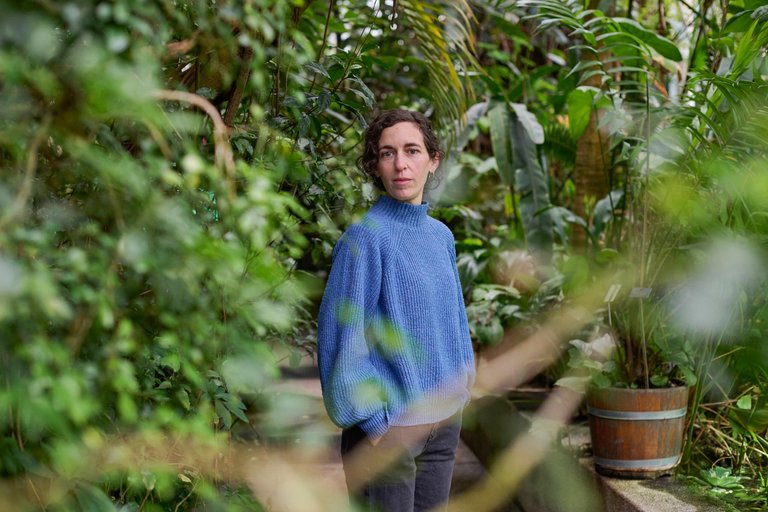
Jasmine Gordon earned a master's degree in documentary filmmaking at Stanford. Although she's directed several short films, The Courageous is her debut feature. It received rave reviews at various festivals, highlighting her film as an example of social realism and a challenge to a value system that often denies opportunities and imprisons its citizens. Without resorting to rhetorical rhetoric or excessive melodrama, Gordon has managed to present a film that moves you inside and stays in your head. Highly recommended.
Jasmine Gordon hizo una maestría en cine documental en Stanford y aunque había dirigido varios cortometrajes, The Courageous es su primera película y recibió buenas críticas en diferentes festivales que destacaron su película como una muestra de realismo social y de cuestionamiento de un sistema de valores que muchas veces niega oportunidades y acorrala a sus ciudadanos. Sin caer en discursos panfletarios ni excesivo melodrama, Gordon ha conseguido presentar una película que te remueve por dentro y que se queda dando vueltas en tu cabeza. Recomendadísima.
Saulė Bliuvaitė: Toxic (2024)
From Switzerland we head to Lithuania, where Saulė Bliuvaitė writes and directs Akiplėša (Toxic). In it, she tells the story of Marija and Kristina (debutants Vesta Matulytė and Ieva Rupeikaitė), two thirteen-year-old teenagers who—like so many others at that age—dream of escaping the harsh reality they've had to live through. Lithuania is Europe, but the city shown in Toxic lacks Parisian glamour, Neapolitan charm, or the natural beauty of the Alps. It's an industrial, underdeveloped, almost rural city, where the only way out seems to be a local modeling school attended by girls hoping to be hired by clothing brands, designers, and companies abroad. The promise of a better life pushes girls to modify their bodies in increasingly extreme ways, risking their health and lives, all in order to escape their misery and their world of precariousness, boredom, and absent parents. This is a film that reflects on the cult of beauty and the body, especially adolescent bodies. How are companies dedicated to exploiting girls in this way allowed to exist? And also, how can this be the girls' lifelong dream? The consequences of such a premature life are also shown through the testimonies of those who have managed to leave the village, but who—due to life's twists and turns—have returned there as if a sentence weighed upon them. The desire for freedom, determination, fear, but also recklessness are all present in this poignant story.
De Suiza nos vamos a Lituania en donde Saulė Bliuvaitė escribe y dirige Akiplėša (Toxic). En ella nos cuenta la historia de Marija y Kristina (las debutantes Vesta Matulytė e Ieva Rupeikaitė), dos adolescentes de apenas trece años que - como tantas a esa edad - sueñan con escapar de la dura realidad que les ha tocado vivir. Lituania es Europa, pero la ciudad que se nos muestra en Toxic no tiene el glamour parisino, el encanto napolitano ni la belleza natural de los Alpes. Se trata de una ciudad industrial, subdesarrollada, casi rural, en donde el único boleto de salida parece estar representado por una escuela local de modelos a donde acuden las chicas con el deseo de ser contratadas por marcas de ropa, diseñadores y empresas en el extranjero. La promesa de una vida mejor empuja a las chicas a modificar sus cuerpos de formas cada vez más extremas, poniendo en riesgo su salud y su vida, todo con tal de salir de su miseria y de su mundo de precariedad, aburrimiento y padres ausentes. Esta es una película que reflexiona sobre el culto a la belleza y al cuerpo, sobre todo a los cuerpos adolescentes, ¿cómo se permite que existan empresas dedicadas a explotar a las niñas de esa manera? y también ¿cómo puede ser este el sueño de vida de las chicas? Las consecuencias de una vida así, tan prematura, también se muestra a través del testimonio de aquellas que han conseguido salir del pueblo, pero que - por cosas de la vida - han vuelto allí como si una condena pesara sobre ellas. Las ansias de libertad, la determinación, el miedo, pero también la temeridad, están presentes en esta aguda historia.

Toxic is Saulė Bliuvaitė’s directorial debut and premiered at the 77th Locarno Film Festival, where it won the Golden Leopard. Bliuvaitė previously co-wrote another screenplay (Izaokas by Jurgis Matulevicius) and is starring in The Visitor by Vytautas Katkus, which won Best Director at the Karlovy Vary Film Festival. So, mark Saulė Bliuvaitė’s name and put Lithuania on your map, because this is a voice that promises to shake us up with more stories.
Toxic es el debut como directora de Saulė Bliuvaitė y se estrenó en el 77º Festival de Cine de Locarno donde ganó el Leopardo de Oro. Además, Bliuvaitė ya había co escrito otro guion (Izaokas de Jurgis Matulevicius) y participa como actriz en The Visitor de Vytautas Katkus, película que se llevó el premio a Mejor Dirección en el Festival de Karlovy Vary. Así que apunten el nombre de Saulė Bliuvaitė y ubiquen a Lituania en el mapa porque se trata de una voz que promete sacudirnos con más historias.
Kurdwin Ayub: Mond (2024)
And from Lithuania we head to Austria to revisit the work of Kurdish-born Austrian director Kurdwin Ayub and her film Mond (Moon). In it, we follow Sarah (Florentina Holzinger), a former mixed martial arts fighter who is hired by a wealthy Middle Eastern family to become the personal trainer of the family's three daughters. Leaving Austria behind, and with it a bit of the shame of having seen her career in the ring end, Sarah arrives at a walled palace under constant guard. It's understandable that due to the family's wealth, many security precautions are taken, but despite initial conversations, Sarah begins to feel that rather than keeping threats out of the house, the walls seem to want to keep the girls inside, who don't seem really interested in boxing. However, despite the girls' lack of interest, little by little, Sarah begins to gain their trust and begins to see and hear things that aren't right inside that house. What can she do about it? Can or should she do anything? It's a different world, a different culture, different customs, and the former wrestler could find herself embroiled in a plot more dangerous than she can handle. Will she help the girls escape that oppressive atmosphere? Can she? Isn't it better to leave that house and not fight a fight she doesn't understand and that, in any case, isn't hers? Between days of training and nights of drinks in a bar, Sarah navigates the dilemma between sisterhood and survival.
Y de Lituania nos vamos a Austria para revisar el trabajo de la directora austríaca de origen Kurdo Kurdwin Ayub y su película Mond (Moon). En ella seguimos a Sarah (la debutante Florentina Holzinger), una ex luchadora de artes marciales mixtas que es contratada por una familia adinerada de Medio Oriente para convertirse en la entrenadora personal de las tres hijas mujeres de la casa. Dejando atrás Austria, y con ello un poco la vergüenza de haber visto terminarse su carrera dentro del ring, Sarah llega a un palacio amurallado y bajo constante vigilancia. Se entiende que debido a la cantidad de dinero de la familia, se tomen muchas precauciones de seguridad, pero a pesar de las conversaciones iniciales, Sarah comienza a sentir que más que mantener las amenazas fuera de la casa, los muros parecen querer retener dentro de ellos a las chicas, quienes no parecen realmente interesadas en el boxeo. Sin embargo, a pesar del desinterés de las muchachas, poco a poco, Sarah comienza a ganar su confianza y comienza a ver y a escuchar cosas que no están bien dentro de esa casa, ¿qué hacer al respecto? ¿puede o debe hacer algo? Se trata de un mundo diferente, es otra cultura, son otras costumbres, y la ex luchadora podría verse envuelta en una trama más peligrosa de lo que puede ser capaz de enfrentar, ¿ayudará a las chicas a escapar de esa atmósfera opresiva? ¿acaso puede hacerlo? ¿no es mejor dejar esa casa y no librar una lucha que no entiende y que en todo caso no es la suya? Entre jornadas de entrenamiento y noches de tragos en un bar, Sarah navega en el dilema entre la sororidad y la supervivencia.
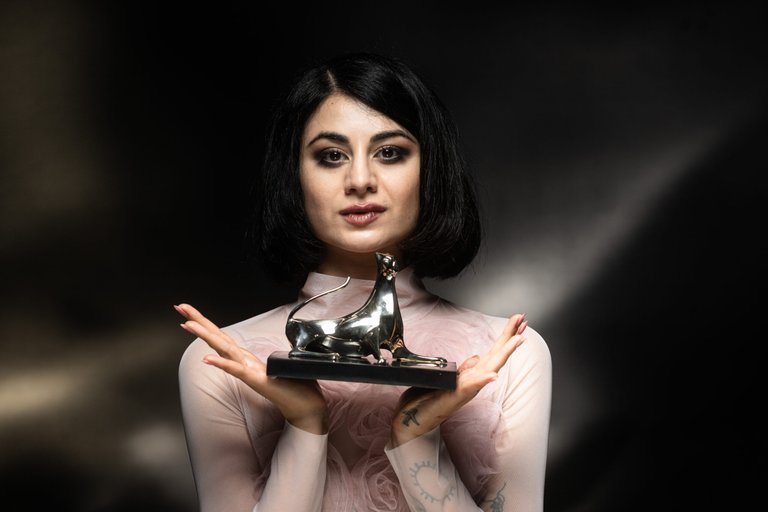
Moon is Florentina Holzinger's debut role, but she's no stranger to the artistic world. She's a choreographer, director, and performance artist whose stage work includes all-female casts. I believe this is why she understood so well what her director, Kurdwin Ayub, was asking of her, and why Moon was so successful, taking home two awards at the Locarno Film Festival, including the Special Jury Prize. Of the three directors mentioned in this post, Ayub is the only one who had previously filmed another feature film, Sonne, which won the Best First Feature Award at the Berlin International Film Festival in 2022, so this is another name to keep in mind for the coming years.
Like Jasmin Gordon, Saulė Bliuvaitė, and Kurdwin Ayub, there are also other female directors just starting out in the world of cinema who are worth checking out. Such is the case of Rebecca Lenkiewicz, a screenwriter who had worked on films such as Disobedience by Sebastián Lelio, Ida by Pawel Pawlikowski and She Said by Maria Schrader (the director of the series Unorthodox) and who makes her directorial debut with Hot Milk, starring Emma Mackey and Vicky Krieps, a review I have pending; and also of Dea Kulumbegashvili, a Georgian director who dazzled me with her debut, Dasatskisi (Beginning) and whose latest film, April, is on my list to see. In addition to these names, what other new female directors do you know of that we should check out? who's your favorite? I'll read you in the comments.
Moon es el primer papel de Florentina Holzinger, pero la mujer no es ajena al mundo artístico. Es una coreógrafa, directora y artista de performance cuyo trabajo escénico incluye elencos exclusivamente femeninos. Creo que por eso supo entender tan bien lo que le pedía su directora Kurdwin Ayub y por eso el éxito de Moon que se llevó dos premios en el Festival de Cine de Locarno, incluyendo el Premio Especial del Jurado. De las tres directoras referidas en este post, Ayub es la única que ya había filmado otro largometraje previamente, Sonne, que se llevó el premio a Mejor Ópera Prima en el Festival Internacional de Berlín en 2022, así que este es otro nombre a tener en cuenta para los próximos años. Como Jasmin Gordon, Saulė Bliuvaitė y Kurdwin Ayub, hay también otras directoras que comienzan su recorrido por el mundo del cine y que vale la pena revisar. Tal es el caso de Rebecca Lenkiewicz, guionista que había trabajado en la escritura de películas como Disobedience de Sebastián Lelio, Ida de Pawel Pawlikowski y She Said de Maria Schrader (la directora de la serie Unorthodox) y que hace su debut como directora en Hot Milk , protagonizada por Emma Mackey y Vicky Krieps, reseña que tengo pendiente; y también de Dea Kulumbegashvili, directora georgiana que me deslumbró con su debut, Dasatskisi (Beginning) y que tengo en lista para ver su última película, April. Además de estos nombres, ¿qué otra directora nueva conocen que debamos revisar? Los leo en los comentarios.
Reviewed by | Reseñado por @cristiancaicedo
Other posts that may interest you | Otros posts que pueden interesarte:
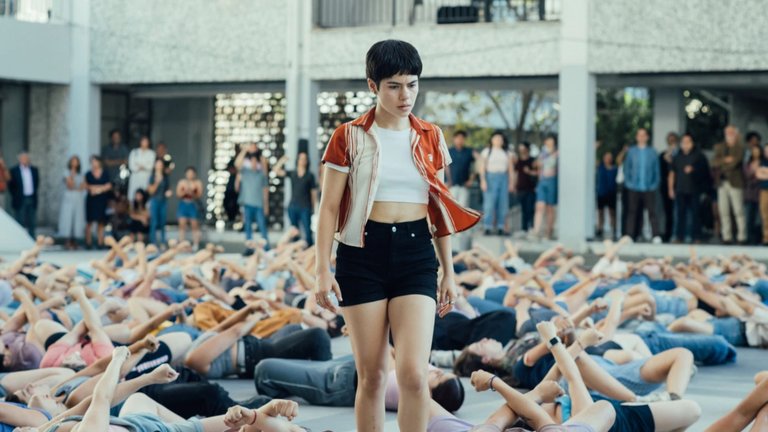 |
|---|
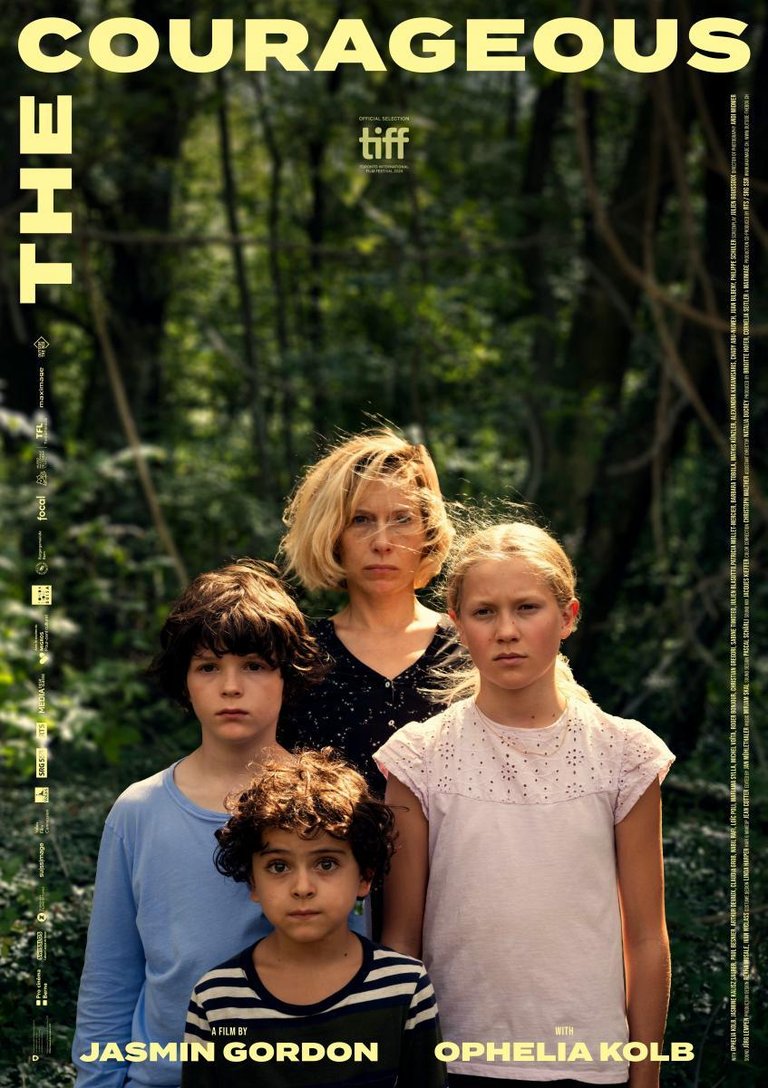

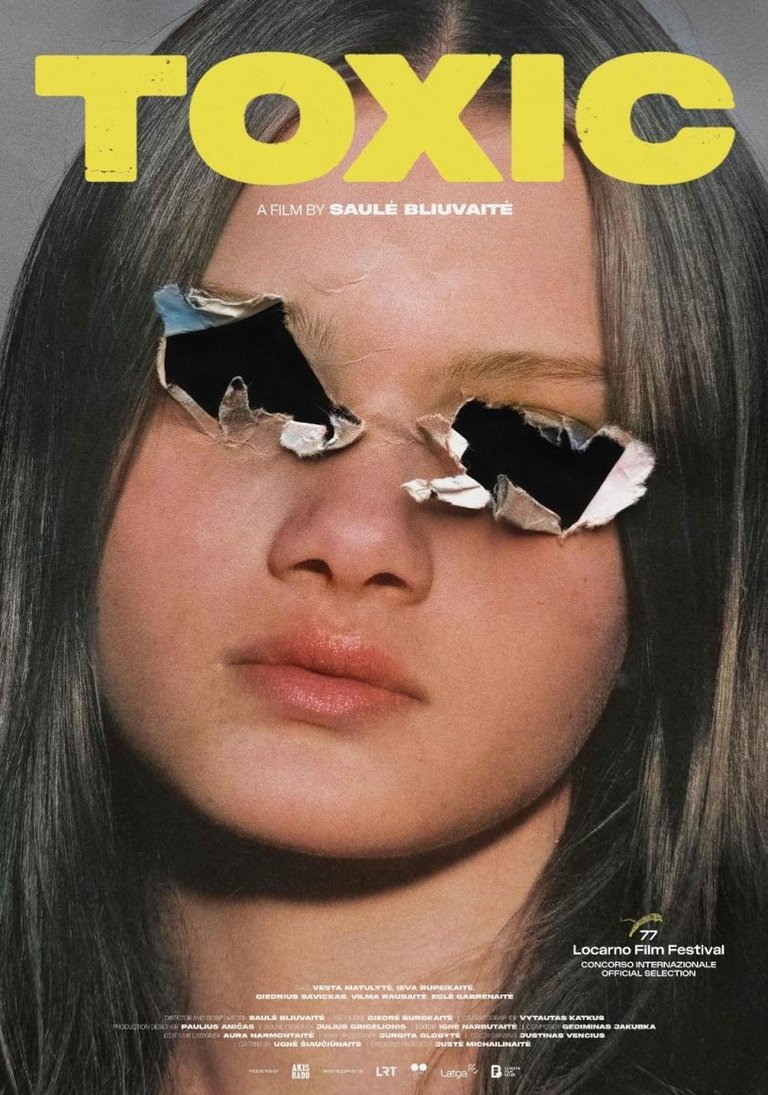
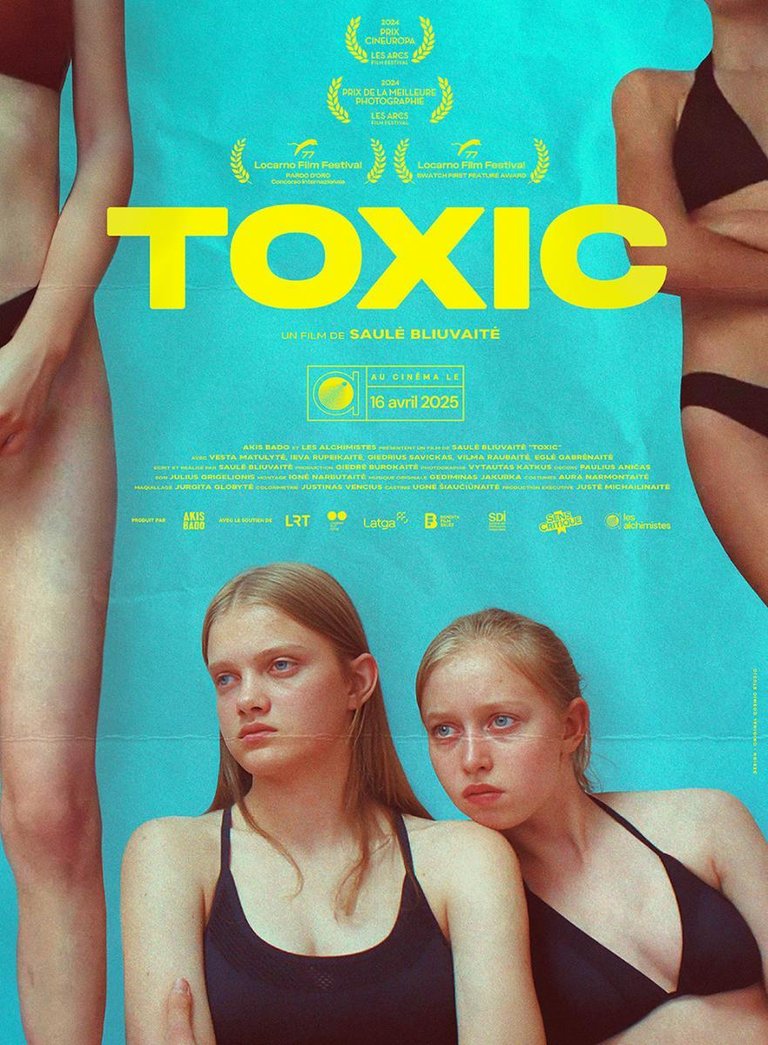
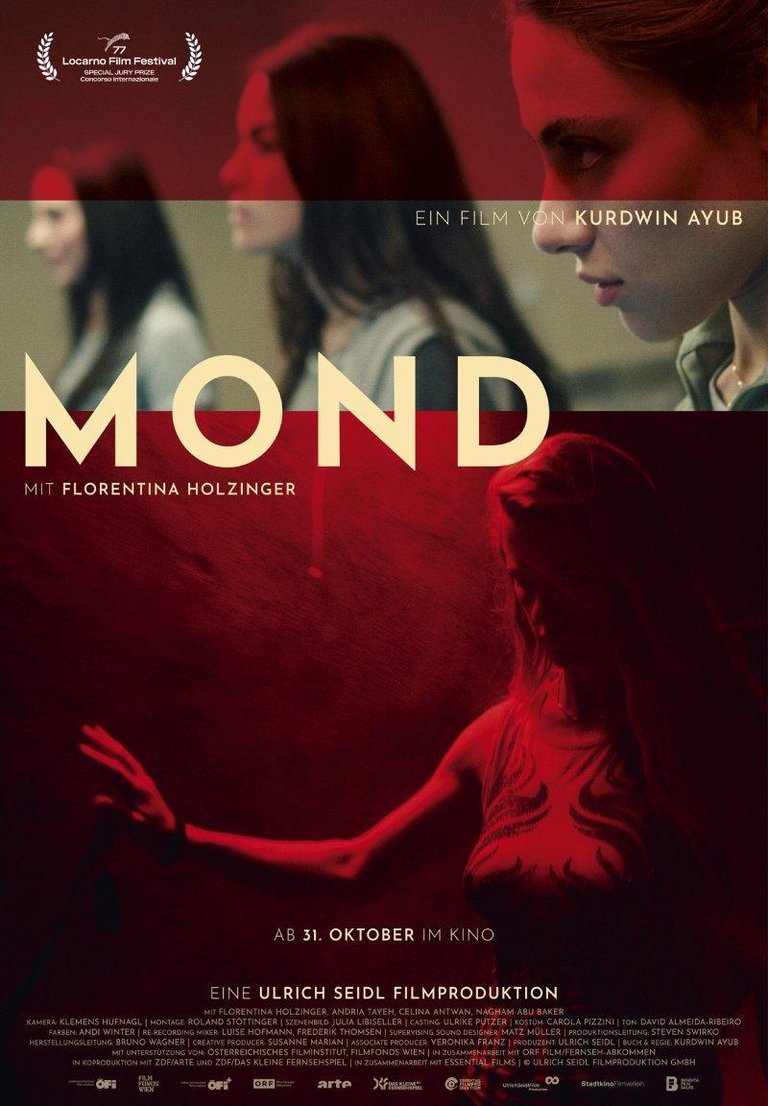

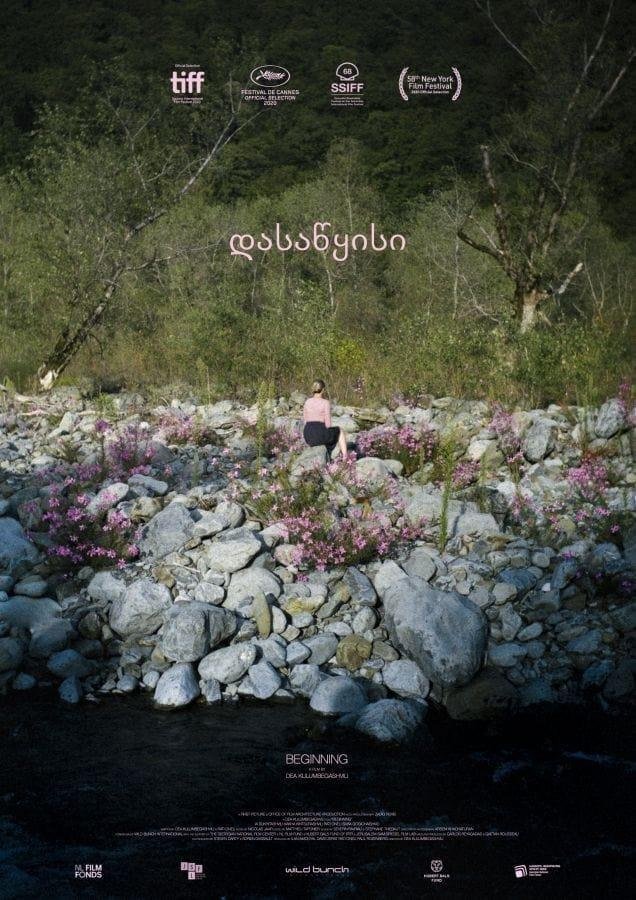
Thank you for highlighting the work of these women. Women who, in turn, as directors and actresses, highlight all women around the world through stories that speak to the role of women in society, their traumas, their limitations, and their dreams. Best regards, @cristiancaicedo
hive-111516
Si estás interesado, te invitamos a unirte a nuestra comunidad y servidor en Discord:
https://peakd.com/c/hive-111516/created
https://discord.gg/dzHu6ZxkNU
If you are interested, we invite you to join our community and server on Discord:
https://peakd.com/c/hive-111516/created
https://discord.gg/dzHu6ZxkNU
ENLACE PARA UNIRSE AL TRAIL https://hive.vote/dash.php?i=1&trail=celf.magazine
ENLACE PARA UNIRSE AL FANBASE https://hive.vote/dash.php?i=2&fan=celf.magazine
Thank you so much for supporting my content once again. Greetings.
More women are flooding this industry